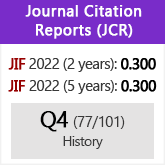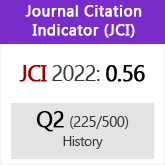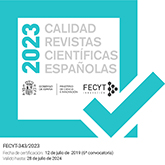Missing in Mexico: Denied victims, neglected stories
DOI:
https://doi.org/10.3989/chdj.2014.018Keywords:
Enforced disappearance, dirty war, rehumanization, transitional justice, memory, war on drugsAbstract
In this article, I will describe the mostly invisibilized “fight for rehumanization” of the families of the dehumanized disappeared of the Mexican Dirty War of the 1960s and 1970s. The conflictive memory politics in Mexico and the ambivalent transitional justice process led to processes of re-dehumanization for the families of the disappeared. Within these processes of clarification of past crimes, new spaces of violence emerged. The current “war on drugs” has caused an unprecedented number of new cases of disappearances. I will argue that there are continuities between the Dirty War in the past and the Dirty War practices within the present conflict. In this complex context of violence, the disappearances take place in a battlefield with blurred boundaries: disappearances for political reasons are intermingled with cases of disappearances due to organized crime and new fights for the rehumanization of the disappeared have evolved. In this climate of terror and fear, the families of the disappeared—those of the past and those of the present—are crucial counter-memory groups that object to official discourses that deny the crimes committed by the state.
Downloads
References
Acosta, Mariclaire; Ennelin, Esa (2006) "The 'Mexican Solution' to Transitional Justice". In: Transitional Justice in the Twenty-First Century. Beyond Truth versus Justice, edited by Roht-Arriaza, Naomi and Mariezcurrena, Javier. Cambridge University Press, Cambridge: 94-119. http://dx.doi.org/10.1017/CBO9780511617911.006
Afflito, Frank M.; Jesilow, Paul (2007) The Quiet Revolutionaries. Seeking Justice in Guatemala. University of Texas Press, Austin.
Aguayo Quezada, Sergio; Trevi-o Rangel, Javier (2007) "Fox y el Pasado. La Anatomía de una Capitulación". Foro Internacional, 190, XLVII (4): 709-739.
Aguilar, Rubén; Casta-eda, Jorge (2012) Los Saldos del Narco: El Fracaso de una Guerra. Punto de Lectura, Mexico City.
Antillón Najlis, Ximena (2008): La desaparición forzada de Rosendo Radilla en Atoyac de Álvarez, informe de Afectación Psicosocial. Comisión Mexicana de Defensa y Promoción de los Derechos Humanos A. C., Mexico City.
Bartra, Armando (1996) Guerrero Bronco. Campesinos, ciudadanos y guerrilleros en la Costa Grande. Ediciones Era, Mexico City.
Becker, Anne; Burkert, Olga (2008) "Hijos argenmex. Neue Formen und Diskurse der Erinnerung in Argentinien und Mexiko". In Erinnerung macht gegenwart, Analysen und Berichte, edited by Huffschmid, Anne and Krämer, Michael and Gabbert, Karin and Gabbert, Wolfgang. Lateinamerika Jahrbuch 32, Westfälisches Dampfboot, Mu.nster, 104-124.
Beith, Malcolm (2010) The Last Narco. Inside the Hunt for El Chapo, the World's Most Wanted Drug Lord. Grove Press, London.
Bellingeri, Marco (2003) Del agrarismo armado a la Guerra de los pobres. 1940-1974. Casa Juan Pablos, Mexico-City. PMid:14519265
Brandes, Stanley (1998) "Iconography in Mexico’s Day of the Dead: Origins and Meaning". Ethnohistory 45 (2): 181-218. Campbell, Howard (2009) Drug War Zone. Frontline Dispatches from the Streets of El Paso and Juárez. University of Texas Press, Austin.
Campbell, Howard (2014) "Narco-Propaganda in the Mexican `Drug War´: An Anthropological Perspective". Latin American Perspectives, 41: 60-77. http://dx.doi.org/10.1177/0094582X12443519
Castellanos, Laura (2007) México Armado 1943–1981. Ediciones Era, Mexico-City.
CMDPDH/Comisión Mexicana para la Defensa y Promoción de los Derechos Humanos (2010) La Sentencia de la Corte IDH. Caso Radilla Pacheco vs. Estados Unidos Mexicanos. CMDPDH, Mexico City.
Comité 68 (2008) Informe Histórico presentado a la sociedad mexicana: Fiscalía especial FEMOSPP. Serie: México: Genocidio y delitos de lesa humanidad. Documentos fundamentales 1968-2008, Tomo IX. Comité 68, Mexico City.
Das, Veena and Poole, Deborah (editors) (2004) Anthropology in the Margins of the State. School of the American Research-Press, Santa Fe.
David, Gary C. and Jalbert, Paul L. (2008): "Undoing Degradation: The Attempted 'Rehumanization' of Arab and Muslim Americans". Ethnographic Studies, 10: 23-47.
Esmeir, Samera (2006): "On Making Dehumanization Possible". Modern Language Association, 121 (5): 1544-1551.
Ferrándiz Francisco (2009): "Fosas comunes, paisajes el terror". Revista de Dialectología y Tradiciones Populares, LXIV (1): 61-94.
Ferrándiz, Francisco (2010) "De las fosas comunes a los derechos humanos: El descubrimiento de las desapariciones forzadas en la Espa-a contemporánea". Revista de Antropología Social 19: 161-190.
Gatti, Gabriel (2008) El Detenido-Desaparecido: Narrativas Posibles para una Catástrofe de la Identidad. Ediciones Trilce, Montevideo.
Gómez-Barris, Macarena (2009) Where Memory Dwells. Culture and State Violence in Chile. University of California Press, Berkeley.
Herman, Judith L. (1998) "Recovery from Psychological Trauma". Psychiatry and Clinical Neurosciences 52 (5): 145-150.
Jelin, Elizabeth (2003) State Repression and the Labors of Memory. University of Minnesota Press, Minneapolis.
Karl, Sylvia (2014) "Rehumanizing the Disappeared: Spaces of Memory in Mexico and the Liminality of Transitional Justice". American Quarterly, 66 (3): 727-748 http://dx.doi.org/10.1353/aq.2014.0050
Karl, Sylvia (2014a) Kampf um Rehumanisierung. Die Verschwundenen des Schmutzigen Krieges in Mexiko. Transcript, Bielefeld. http://dx.doi.org/10.14361/transcript.9783839428276
Katz, Friedrich (2006) "La Guerra Fría en América Latina y sus particularidades en México". In Nuevos ensayos mexicanos, edited by Katz, Friedrich. Ediciones Era, Mexico City: 455-473.
Lomnitz, Claudio (2006) Idea de la Muerte en México. Fondo de Cultura Económica, Mexico-City.
López y Rivas (2012) "Viejas y nuevas guerras sucias". El Cotidiano, 172: 116-123.
Maier, Elizabeth (2001) Las madres de los desaparecidos. ¿Un nuevo mito materno en América Latina?. Universidad Autónoma Metropolitana, Mexico City.
Maoz, Ifat/McCauley, Clark (2008) "Threat, Dehumanization, and Support for Retaliatory Aggressive Policies in Asymmetric Conflict". The Journal of Conflict Resolution 52 (1): 93-116. http://dx.doi.org/10.1177/0022002707308597
Marcial Jiménez, Rodrigo (2009) Violencia y narcotráfico en México. Universidad Autónoma del Estado de México, Mexico.
Mendoza García, Jorge (2011) "La tortura en el marco de la Guerra sucia en México. Un ejercicio de memoria colectiva". Polis: Investigación y Análisis Sociopolítico y Psicosocial, 7 (2): 139-179.
Miranda Ramírez, Arturo (2006) La Violación de los Derechos Humanos en el Estado de Guerrero durante la Guerra Sucia: Una Herida no Resta-ada. Taller José C.Orozco: Universidad Autónoma de Guerrero, Chilpancingo.
Montemayor, Carlos (2010) La Violencia de Estado en México. Antes y después de 1968. Debate, Mexico City.
Oelofsen, Rianna (2009): "De- and rehumanization in the wake of atrocities". South African Journal of Philosophy 28 (2): 178-188. http://dx.doi.org/10.4314/sajpem.v28i2.46677
Oikión Solano, Verónica and García Ugarte, Marta Eugenia (editors) (2006) Movimientos armados en México, siglo XX. El Colegio de Michoacán/CIESAS, Zamora.
Osorno, Diego Enrique (2009) El cártel de Sinaloa. Una historia del uso político del narco. RandomHouseMondadori, Mexico-City. PMid:19759387 PMCid:PMC3648865
Osorno, Diego (2012) La guerra de los Zetas. Viaje por la frontera de la necropolítica. Grijalbo, Mexico City.
Rangel Lozano, Claudia (2011) "La voz de los sobrevivientes: Las cárceles clandestinas en Guerrero, México: una radiografía. 1969–1979". O público e o privado, 18: 75-92.
Reveles, José (2011) Levantones, Narcofosas y falsos positivos. Grijalbo, Mexico City. PMCid:PMC3121812
Robben, Antonius (2005) Political Violence and Trauma in Argentina. University of Pennsylvania Press, Philadelphia. http://dx.doi.org/10.9783/9780812203318
Rodríguez Munguía, Jacinto (2007) La otra guerra secreta. Los archivos prohibidos de la prensa y el poder. Debolsillo, Mexico City.
Sáenz Carrete, Erasmo (2001) "Prefacio". In: Las madres de los desaparecidos. ¿Un nuevo mito materno en America Latina?, edited by Maier, Elizabeth. Universidad Autónoma Metropolitana, Mexico City: 15-24.
Sant Cassia, Paul (2007) Bodies of Evidence: Burial, Memory and the Recovery of Missing Persons in Cyprus. Berghahn Books, Oxford.
Scovazzi, Tullio and Citroni, Gabriella (2007) The Struggle against Enforced Disappearance and the 2007 United Nations Convention. MartinusNijhoff, Leiden/Boston. http://dx.doi.org/10.1163/ej.9789004161498.i-434
Sicilia, Javier (2011) Estamos hasta la Madre. Editorial Planeta Mexicana, Mexico City.
Turner, Victor (1967) The Forest of Symbols: Aspects of Ndembu Ritual. Cornell University Press, Ithaka/New York. Van Gennep, Arnold (1961) The Rites of Passage. University of Chicago Press.
Published
How to Cite
Issue
Section
License
Copyright (c) 2014 Consejo Superior de Investigaciones Científicas (CSIC)

This work is licensed under a Creative Commons Attribution 4.0 International License.
© CSIC. Manuscripts published in both the printed and online versions of this Journal are the property of Consejo Superior de Investigaciones Científicas, and quoting this source is a requirement for any partial or full reproduction.All contents of this electronic edition, except where otherwise noted, are distributed under a “Creative Commons Attribution 4.0 International” (CC BY 4.0) License. You may read here the basic information and the legal text of the license. The indication of the CC BY 4.0 License must be expressly stated in this way when necessary.
Self-archiving in repositories, personal webpages or similar, of any version other than the published by the Editor, is not allowed.

















